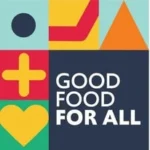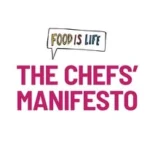In lieu of the Committee on World Food Security (CFS) 47 Plenary session, the virtual CFS High-Level Special Event on Global Governance of Food Security and Nutrition gathered governments, UN agencies, civil society, private sector, agricultural researchers and more to elevate food security and nutrition to the centre of the sustainable development agenda.
Alongside high-level figures including CFS Chair Thanawat Tiensin and the Heads of the Rome-based UN agencies, delegates took stock of global food security, reflected on the impacts of COVID-19 and discussed two key CFS products: the draft Voluntary Guidelines on Food Systems and Nutrition, and the CFS Policy Recommendations on Agroecological and Other Innovative Approaches.
Find below five key takeaways from the three-day conference.
- People and collaboration at the heart of a COVID-19 recovery
- Food Systems Dashboard & ‘No Regrets’ actions
- Improved data for strengthened food security and nutrition
- A transgenerational and women’s view of a food systems transformation
- Women are the glue of our rural communities and global food systems
People and collaboration at the heart of a COVID-19 recovery
“The food systems we have created put nutritious food out of reach, with COVID-19 compounding inequalities,” reflects Dr. Tedros, Director-General of the WHO. Disrupting all areas of our food systems and driving food insecurity, the COVID-19 pandemic as an ‘existential threat’ was featured heavily throughout the CFS Special Event.
 Beginning with the crucial role of farmers, President of the International Fund for Agricultural Development (IFAD) Gilbert Houngbo stated that the “pandemic reveals the cost of underinvestment in the agriculture sector and underscores the urgent need to restructure food systems.” Mr Houngbo pointed to the new Ceres2030 report that estimates an additional $14 billion a year is required to end hunger, double farmer’s incomes & limit agriculture emissions in line with the Paris Agreement.
Beginning with the crucial role of farmers, President of the International Fund for Agricultural Development (IFAD) Gilbert Houngbo stated that the “pandemic reveals the cost of underinvestment in the agriculture sector and underscores the urgent need to restructure food systems.” Mr Houngbo pointed to the new Ceres2030 report that estimates an additional $14 billion a year is required to end hunger, double farmer’s incomes & limit agriculture emissions in line with the Paris Agreement.
Further down our food chains, UNICEF Chief Henrietta Fore called attention to the escalating childhood malnutrition crisis. A recent Lancet Analysis warns that 6.7 million children under the age of five are at risk of wasting as a result of COVID-19. Ms Fore called for two immediate actions: to ensure that affordable healthy food is available for all families; and to safeguard access to nutrition programmes and safety nets.
These grim predictions follow global warnings of rising hunger and food insecurity, as reported in the 2020 State of Food Security and Nutrition in the World.
So, what will COVID-19 mean for the future of food security and nutrition? How do we rebuild and strengthen food systems for future crises arising from zoonotic diseases? Recognising that the full impacts of the pandemic are yet to be felt in their entirety, CFS participants shared a few starting points:
- Women at the centre of COVID-19 recovery: “It is time we recognise that food security and nutrition will only be achieved when women exercise their full agency and capacities,” says Deputy Secretary-General Amina Mohammed.
- Building back better: Martin Cole and Jennifer Clapp of The High Level Panel of Experts on Food Security and Nutrition (HLPE) shared recommendations from HLPE Issue paper: robust social programmes for access to healthy food; coordinate policy responses to COVID-19; support diverse, resilient distribution systems, to name a few.
- A rights-based approach: “COVID response must be based on rights of food workers and producers,” emphasized the UN Special Rapporteur on the Right to Food Michael Fakhri
- Coordination: To avert famine and destabilisation, WFP Chief David Beasley called for greater coordination. “We’re going to have to work together and step up in a way we’ve never done before.”
Food Systems Dashboard & ‘No Regrets’ actions
We’re getting better at understanding how food systems shape and are shaped by diets, health, climate, livelihoods and other factors. And yet, policymakers are very much in the dark on how to manage food systems and which levers to pull for healthy people and the planet.
The CFS side event ‘Google maps for Food Systems’, hosted by GAIN, John Hopkins, FAO, Rockefeller and WFP, highlighted the new tool Food Systems Dashboard as a starting point, as it helps to contextualise food systems, linking information on diets, nutrition, food production and other food indicators in one place.
“Transforming food systems requires knowledge of what they currently look like, where their problems are, and what to do to change them.” – Lawrence Haddad, GAIN Executive Director.
The Dashboard currently gathers data on 170+ indicators from 30 sources to create a detailed picture of global, regional and national food systems. In its next stage, Corinna Hawkes highlights that the Dashboard will include ‘No Regrets’ actions, a collection of policy actions that go beyond context and are required everywhere to transform food systems and improve diets. Once integrated into the platform, users will be able to determine which of the ‘No Regrets’ actions are suitable to their setting.
“The Dashboard and ‘No Regrets’ actions mean there are no excuses for inaction and will be two essential tools to help us navigate the choices we need to take to change food systems for good,” says Lawrence.
Improved data for strengthened food security and nutrition
With the number of hungry people once again on the rise, “decision makers need more granular and timely data to make decisions,” says Jenna Slotin, Senior Director of Policy at the Global Partnership for Sustainable Development Data, at the start of side event ‘Addressing data gaps in agriculture and global coordination efforts for food security and nutrition policies in response to COVID-19’.
Put simply, “too much data is out of date,” reflects Jenna. Hosted by the Global Partnership, the Governments of Argentina, Bangladesh and Uganda, USAID, and the Bill and Melinda Gates Foundation, this discussion shared country-level experiences of data systems, in light of the pandemic. 
Data challenges for Uganda include hurdles to standardising methodologies across geographic areas and data policies that are often “outdated”. John Okiror, the Assistant Commissioner for Uganda’s Ministry of Agriculture, also highlighted that COVID-19 has halted data analysis and led to the reallocation of resources away from this workstream. Halfway across the world, Ariel Martinez, the Chief of Cabinet for Argentina’s Ministry of Agriculture, identified climate change, desert locusts and currency instability as pre-COVID agri-food challenges. In response, Argentina is investing in infrastructure to adapt to climate change, as seen by a new satellite data system that detects crop diseases and alerts farmers.
A transgenerational and women’s view of a food systems transformation
Policy recommendations now, and in the future, must take into account and accord women and young people agency.
Hosted by Action Contre la Faim and the Food Governance working group, the CFS side event ‘COVID-19 impacts: a transgenerational and women’s viewpoint on food systems transformation’ discuss recent and future policy proposals and analysis, from youth and women’s perspectives.
Starting with testimonials from different parts of the world, it explored the short and long-term impacts of COVID-19 on food security, specifically from the view of women and youth. It then discussed solutions to strengthen food systems resilience and the role of CFS as the home of these discussions.
Women are the glue of our rural communities and global food systems
On 15 October, the world celebrated Rural Women’s Day, recognising rural women as important actors in our food system. While critical to ensure food security and nutrition, women and girls are often left behind – a reality compounded by COVID-19 with women more likely to have lost their jobs or eating less to mitigate the pandemic’s economic impacts. A recent CARE report concludes that responses to COVID-19 and related hunger crises are either ignoring women and girls or treating them as victims who have no role in addressing the problems they face.
“Women and girls are bearing the brunt of the massive social and economic impact of the pandemic,” says Amina Mohammed. “Unless we act now, COVID-19 could wipe out a generation of fragile progress towards gender equality – particularly for rural women.”
Get involved
Find here resources from the CFS High-Level Special Event.
The CFS 47 Plenary has been rescheduled for 8 – 21 February 2021.
Going beyond CFS, check out the numerous reports that launched last week: FAO/ZEF’s Investment Costs and Policy Action Opportunities for Reaching a World Without Hunger (SDG2), Ceres2030: Sustainable solutions to end hunger, WFP’s The Cost of a Plate of Food 2020, Welthungerhilfe’s Global Hunger Index and Oxfam’s Later will be too late.



